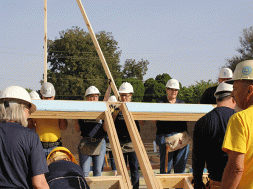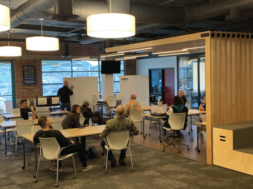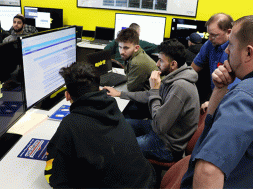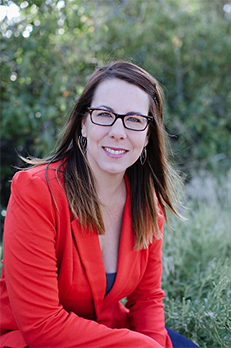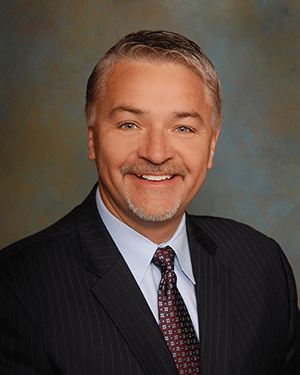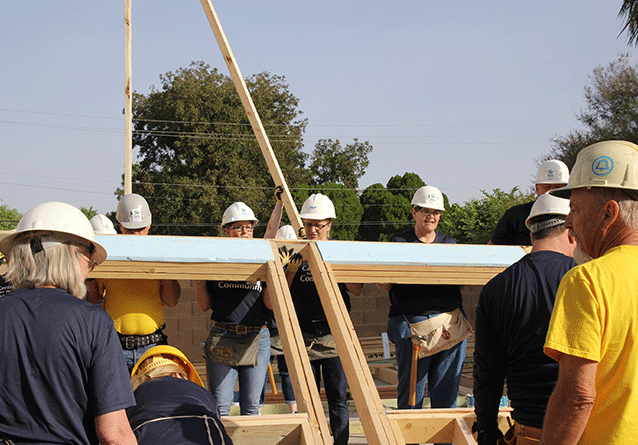
The Community Connection – How Pima Medical Institute Utilizes Strategic Partnerships
By Jen Spurlin, Corporate Director of Education and John Hanson, Regional Director of Operations, Pima Medical Institute
Community partnerships are one of the cornerstones of a successful college or university, especially in the sector of career colleges. But partnerships must be strategic. More than just “is” the partnership going to happen, schools must look at “why” the partnership is important. Pima Medical Institute recently presented at the annual Career Education Colleges and Universities (CECU) CEO Summit. The primary focus of the presentation was the different types of community partnerships and how Pima Medical approaches each one.
“Good citizens care about, and are engaged in, their communities, said Steve Gunderson, President and CEO of CECU. “When a Career College or University is a good community citizen, their priority will be student success. And their partner will be the community’s employers who help define the emerging skill demands and employing a school’s graduates.”
Gunderson added, “Pima Medical Institute has used this philosophy to create academic success, graduate’s employment, and enrollment growth. It is for this reason we asked them to share their strategies with our CEO Summit. We appreciate this because it is in learning from each other that the entire sector becomes better!”
Pima Medical Institute’s mission is to improve the quality of people’s lives by providing the best value in medical career education. Since Pima Medical opened its first campus in Tucson, Arizona more than 45 years ago, the school has grown to now have 17 campuses, a robust online program, more than one thousand employees and, most impressive, more than 120,000 graduates.
One might ask, with such success why is it so important for Pima Medical Institute to reach out and create community partnerships? Those community partnerships have been a driving force in the success of the school and its graduates. To ensure success, the partnerships must be strategic in nature. Beyond reaching out to employers for externships and job placements, Pima Medical puts a real value on meaningful connections. The school takes note of things such as the last time a campus reached out to talk to employers. Partnerships move beyond just graduates. It’s about non-employers as well. Groups like the Boys & Girls Clubs, Habitat for Humanity and more, provide opportunities for Pima Medical employees and students to volunteer, and also allows those groups to leverage their partnership with Pima Medical. For example, when Pima Medical hosted its grand opening of the San Marcos, California campus, the Boys & Girls Club utilized their VIP list to invite additional people to come see the school. That’s a win-win for both organizations.
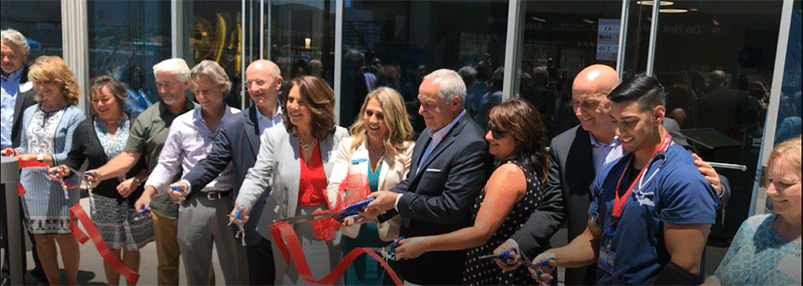
Another important focus of Pima Medical Institute includes positive relationships with political leaders across both sides of the aisle. From mayors to council members, even senators and members of Congress, Pima Medical opens its campus doors to many leaders each year. During the heat of the 2018 Arizona primary season, Pima Medical Institute hosted both Senate candidates, Republican Congresswoman Martha McSally and Democratic Congresswoman Kyrsten Sinema. Sinema spoke at a town hall at the Phoenix campus in late 2018, taking questions from faculty, staff and students.
Pima Medical also hosted dignitaries at the Aurora and Colorado Springs, Colorado campuses and the San Marcos campus. It is important for those leading the communities to see the campuses, understand the hands-on learning the students receive and make themselves available to speak with the students about what matters most to them.
At a recent visit to the East Valley campus in Mesa, Arizona students met with Congressman Andy Biggs, which included a firsthand look at students performing a blood draw as well as some lively discussions.
The more the schools can get both parties to visit their locations, the better. It not only benefits the school, but it also helps the reputation and perception of the entire sector.
More than a partnership based on purpose, a successful partnership must also be based on philosophy. Key corporate decision makers need to back the philosophy of career education through local manpower and resources and encouraging employees to establish relationships. Partnership strategy must address time, money and people resources.
Pima Medical takes great pride in its ability to not just create, but also measure the success of its partnerships. While not everything can be measured, Pima Medical looks at six different categories when determining the effectiveness and success of a partnership.
- Reputation: What people have heard about you
- Credibility: What they know about you – more connections often means more credibility
- Quantity: The quantity of real partnerships and the number of activities
- Externship sites: Connection with future externship sites and employers
- Outcomes: Increased quality that results in better credentialing and placement rates
- Referrals: Grassroots marketing that results in increased enrollments
One particular partnership Pima Medical focused on during the presentation at the CECU conference was its developing partnership with American Medical Response (AMR). AMR is the largest medical transportation company in the United States. AMR serves all 50 states, with 28,000 employees – paramedics, EMTs, Nurses and Communication Specialists. The company transports 5 million patients per year and is the FEMA medical provider for all four U.S. regions.
Lori Burns, a nurse, is also the National Director of Learning for AMR. She joined Pima Medical during its presentation and spoke to the importance of credibility when determining partnerships.
Burns discussed a few of the key items she and her company look for when considering a partnership with a college or university. She listed specifically, graduates who are ready to practice and graduates with skills and a motivation for life-long learning. She also said she looks for caring and compassionate providers, as well as flexibility, adaptability, awareness and a sense of value and service when she chooses a partner.
According to Burns, “the primary focus for me and AMR when working with programs and schools like Pima Medical is to create local community partners to meet our workforce pipeline needs. We are actively seeking out current colleges and schools that already provide EMS education and where that doesn’t exist, find those who are willing to develop those programs and work with us.”
AMR is stepping out of the education field in the Las Vegas market and will be partnering with Pima Medical to create a paramedic associate degree program at the Las Vegas campus. Pima Medical currently offers a similar program at its Mesa campus.
Burns said that for her, Pima Medical was a natural choice. “Career education that is unique like this speaks to our students. They need a well-defined career path and schools like Pima Medical, with all the support and resources, really help our workforce in their careers. They offer a quality and well-defined path with ample support and resources.”
But it isn’t just the quality of education provided by Pima Medical that Burns has been impressed with. “On my tours, visiting various Pima Medical campuses, I found the culture to be what sold me,” she said. “Students are happy, faculty and staff are happy. You just can’t ask for more than that. It’s so important and that’s why Pima Medical was the right choice for us.”
Engaging in quality partnerships like the one with AMR come with a lot of hard work. It’s not just about letting partnerships happen but mapping out how are they going to happen and why. From Career Services to Campus Directors, each person plays a significant role. Even as early as in the hiring phase, leadership must consider goals and an individual’s abilities “to sell.” Leadership must think about and teach soft sales techniques to all employees who connect with the community.
For example, Pima Medical Institute and Franklin Covey created a partnership to specifically blend two premier training organizations together for one purpose – to expand influence, achieve educational objectives and sustainably enrich professional and personal performance of staff, faculty and students. In other words, creating a curriculum that teaches soft-skills and further advances opportunities for students and partnerships.
Pima Medical Institute’s partnerships include more than industry partnerships like AMR or Franklin Covey. Pima Medical is dedicated to philanthropic partnerships as well. Low and no-cost spay and neuter clinics campus-wide through our veterinary technician degree programs and sponsorships of community events like Habitat for Humanity, and many more play an integral role in developing servant leadership and continuing the culture of the college.
In addition, Pima Medical recognizes the importance of partnerships with high schools, other higher education institutions and accreditation partnerships. Pima Medical recently entered into a higher education partnership with the University of St. Augustine and has had a unique partnership with the University of Montana Western for several years. Pima Medical encourages program directors and clinical directors to be site visitors for accreditation service, creating the opportunity to see what other colleges are doing right, and what might need to be improved. Pima Medical also values partnerships with high schools across its many markets. Established partnerships with the East Valley Institute of Technology and the San Marcos Promise, as well as the developing partnership with the El Paso Independent School District are integral for providing current high school students a clear path to college training and career advancement.
It’s not just meetings and representation at various conferences that help to develop partnerships either. Pima Medical focuses on developing their program advisory boards to include industry influencers and leaders. Additionally, employers and other subject matter experts are utilized during curriculum reviews that occur every two years for each program. Pima Medical initiates conversation with current partners to check in and see how things are going. That not only assists in keeping the current partnership on track, but it also often creates a starting point for more partnership opportunities.
Alumni events are a crucial part of the puzzle as well. The college’s alumni coordinator, June Gudeman, works tirelessly to reach out to former students and share their stories, keeping the whole Pima Medical community up-to-date on what former students are accomplishing. Pima Medical’s more than 120,000 graduates are a small army of ambassadors for the college, and by staying connected, a conduit for endless partnership opportunities.
Ultimately, it’s about identifying relationship makers and rainmakers within your organization and making sure you have the right sequence.
Make sure you have the right people throughout the partnership. Pima Medical has found that including someone from the academic and regulatory departments early on in the process is key. Having the right people in the room makes obstacles easier to overcome. Bringing people to the table from the start is imperative to solving any problems that might come up and seeing the partnership through to fruition.
Because of this approach, Pima Medical has been able to create lasting, robust and meaningful partnerships that benefit the school, the students, faculty and staff and ultimately the entire sector of career college education.
More information about Pima Medical Institute can be found at www.pmi.edu.
JEN SPURLIN is Pima Medical Institute’s Corporate Director of Education, providing oversight to the educational components of all the college’s certificate and degree programs. She has provided direction and support and been instrumental in the success of many programmatic accreditations, site visits and self-studies.
In 2004 she joined Pima Medical Institute as a respiratory therapy instructor and was quickly promoted to the respiratory therapy clinical director later that year. In July 2011, Spurlin was promoted to respiratory therapy program director and in 2014 joined the corporate education department as the regulatory affairs coordinator. She now holds the position of corporate director of education.
She holds a Bachelor of Science in Respiratory Care from Midwestern State University and a Master of Education in Career and Technical Education from Northern Arizona University.
Contact Information: Diane Smith // PR and Communications Manager // Pima Medical Institute // 480-610-6068 // dismith@pmi.edu // pmi.edu // Facebook: https://www.facebook.com/pimamedicalinstitute/ // Twitter: @PimaMedical // Instagram: pimamedical
JOHN HANSON is a senior-level executive with 29 years of experience in private, post-secondary education, 14 in regional operations. As one of two Regional Directors of Operations for Pima Medical Institute, Hanson is responsible for overseeing and providing direction to campuses in California, New Mexico, Texas and Colorado, to ensure each is successful in delivering quality education to its students.
Hanson began his career with Pima Medical in 2012 as the campus director in Chula Vista, California. In less than a year he was promoted to his current position. He also served as the 2014 President and Executive Committee Board Member of the California Association of Private Post-Secondary Schools (CAPPS).
Hanson holds a Bachelor of Arts in Theology/Theological Studies from Ambassador University and a Master of Business Administration (MBA) from San Diego State University – California State University.
Contact Information: Diane Smith // PR and Communications Manager // Pima Medical Institute // 480-610-6068 // dismith@pmi.edu // pmi.edu // Facebook: https://www.facebook.com/pimamedicalinstitute/ // Twitter: @PimaMedical // Instagram: pimamedical
